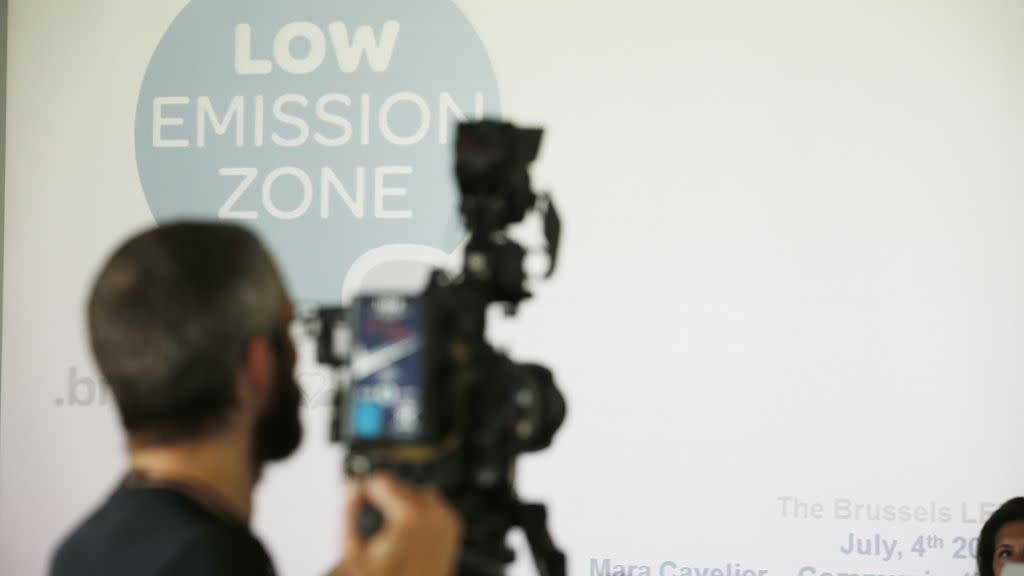Low emissions traffic schemes linked to cleaner air

Cities introducing low emissions zones have cleaner air than those without, according to preliminary research by health insurers comparing Belgian cities Antwerp, Brussels and Ghent with other cities.
The findings were announced in Brussels today (April 23) during an event on clean cities organised in association with Belgium's presidency of the EU Council ahead of a key vote at the European Parliament tomorrow on the Air and Ambient Quality Directive (AAQD).
Low emission zones were introduced in Antwerp and Brussels in 2017 and 2018 respectively, leading to a drop in air pollutants such as black carbon, nitrogen dioxide, and particulate matter, according to research from the Independent Health Insurance Funds based on data collected up until 2022.
The most recent data from the European Environment Agency from 2021 found that the highest particulate matter pollution - responsible for most negative health impacts - was seen in northern Italy, Poland and Slovakia.
“For Brussels, these findings confirm a previous report by the Bruxelles Environment that showed nitrogen dioxide levels have decreased by a record 30% along the major roads of Brussels since 2018, pointing to a similar or even more marked reduction of other harmful pollutants,” according to a statement from NGO Health and Environment Alliance (HEAL), which co-organised the conference.
More deprived neighbourhoods bore the heaviest burden of air pollution, according to the findings, but the implementation of low-emission zones resulted in a faster decrease of air pollution in those areas, according to the Independent Health Insurance Funds, another co-organiser. However, Luk Bruyneel, the head of science and economics at Mutualités Libres, said despite air quality improvements, the majority of Belgians remain exposed to air pollution levels above World Health Organisation (WHO) guidelines.
Patrick Child, director-general at the European Commission’s environment department said clean air is a “fundamental dimension” of the European Green Deal which plays an indispensable link with the climate.
“Despite the progress of many member states, we see that poor air quality is present in many other EU countries with a remaining distressing large number of premature deaths attributed to death pollution annually, especially in urban areas,” Child told the event.
“We know that air pollution is one of the main environmental elements impacting health,” said Xavier Brenez, CEO of Independent Health Insurance Funds.
Alain Maron, environment and energy minister of the Brussels government said 20% of the city’s budget is allocated to public transport, noting that the city today has “more trams and buses less pollutant than the previous models”.
“Under the Belgian Presidency, the EU has taken an important step by revising its air quality standards. These will considerably improve the quality of the air we breathe and will help us to effectively combat air pollution,” said Maron.
Anne Stauffer, deputy director at HEAL, said the AAQD has a “huge potential” to lessen people’s suffering from poor air quality, despite the paper being diluted during negotiations between the Commission, the Parliament and the Council.
“I’m very confident that together with other pieces of legislation, such as the Euro7 (to curb car emissions), we are in a good place to look forward to continue improvements of air quality in the years to come,” added Child.

 Yahoo News
Yahoo News 
